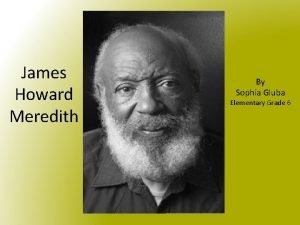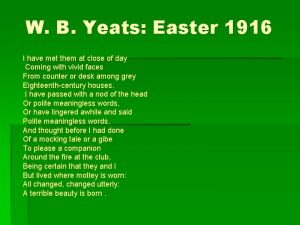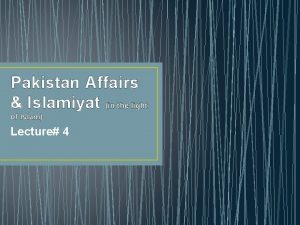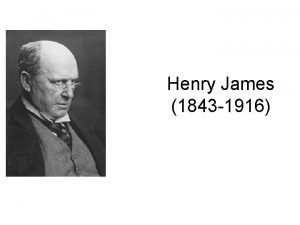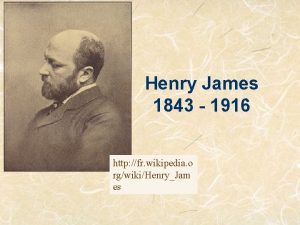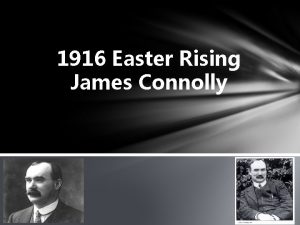Henry James 1843 1916 Introduction Early Life Was







- Slides: 7

Henry James (1843 -1916)

Introduction Early Life Was a great American- British novelist. Born in 1843 in New York He has a standing amongst the most His family (father &Siblings) significant writers of the 19 th-century realism. He has a standing amongst the most significant writers of the 19 th-century realism. His work is heavily influenced by European history and culture. Early education (Geneva, London, Paris, Bologna, and Bonn) High education (Harvard Law School) then quitting to pursue studying literature His travelings (Europe & His interest in Europe’s upper class and their America) formal traditions is evident in his writing. Dead in 1916 He has to his credit 22 novels, more than 100 short stories, autobiographical works, several plays and critical essays.

His Work His Early Work Direct& Simplistic Dramatics& Short Stories Long Written Novels

The Art of fiction (1884) v One the most influential statements on theory of the novel. v It assesses the condition of the genre up to his time and anticipates the direction of its future development. v Its catalyst was a lecture by novelist-historian Walter Besant, “Fiction as One of the Fine Arts (1884) v The essay created a stir to draw out additional comments

The Art of Fiction (1) Form (2) Writer’s Experience (3) Content


The Art of fiction: Pieces of Advice v. To be true to their artistic vision v. To reject public opinion and critical dogma: the essential condition of the genre is it inclusiveness and freedom v. There could be no limits on subject matter v. The stylistic technique and the representation of consciousness must be central concerns of critical discussion and evaluation: James Joyce, Virginia Woolf and William Faulkner.



